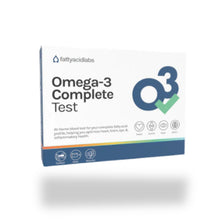
Benefits of Oleocanthal: Exploring the Potential of an Ancient Medicinal Plant
Oleocanthal, a phenolic compound found in extra virgin olive oil (EVOO), has received much attention for its potential health benefits. This natural substance has been shown to have antioxidant, anti-inflammatory, neuroprotective, and anticancer properties, making it a promising candidate for various health applications. Here, we explore the scientific benefits of oleocanthal, based on credible sources and research.
Powerful Antioxidant Properties
Oleocanthal has been shown to have strong antioxidant properties that can protect cells from damage caused by free radicals. Free radicals are reactive molecules that can damage cellular components such as proteins, lipids and DNA. This damage can lead to oxidative stress, which is linked to diseases such as cancer, cardiovascular disease and neurodegenerative diseases.
Research by Beauchamp et al. (2005) showed that oleocanthal has an anti-inflammatory effect similar to ibuprofen, thanks to its ability to inhibit cyclooxygenase (COX) enzymes. Monti et al. (2015) also confirmed that oleocanthal acts as a "scavenger" against free radicals, thereby reducing oxidative stress.
Anti-inflammatory Properties
Chronic inflammation is an underlying factor in many diseases, including arthritis, cardiovascular disease, and neurodegenerative conditions. Several studies, including Cicerale et al. (2012), have shown that oleocanthal inhibits the activity of COX enzymes, thereby reducing inflammation. Parkinson et al. (2015) found that oleocanthal also reduces the production of inflammatory cytokines, important signaling molecules in the inflammatory process.
Neuroprotective Properties
Oleocanthal may protect the brain and nervous system from damage and degeneration. Rigacci et al. (2018) found that oleocanthal can reduce the accumulation of amyloid-beta plaques, a major factor in Alzheimer's disease. In addition, it promotes the breakdown of tau protein, according to Farr et al. (2015), suggesting that it may have therapeutic applications for neurodegenerative diseases.
Anticancer properties
Research shows that oleocanthal can fight cancer. Menendez et al. (2016) showed that oleocanthal induces apoptosis (programmed cell death) in breast cancer cells and inhibits enzymes that contribute to tumor spread. Hashim et al. (2014) found similar effects on colon cancer cells, while Servili et al. (2019) reported that oleocanthal inhibits prostate cell growth and reduces cell colony formation.
Other Potential Health Benefits
Oleocanthal has also shown positive effects on cardiovascular health by reducing the risk of blood clots (Lucas et al., 2011) and can improve insulin sensitivity in diabetes (Abuznait et al., 2013).
Conclusion
Oleocanthal is a natural compound with impressive therapeutic properties. Its antioxidant, anti-inflammatory, neuroprotective, and anticancer properties make it a powerful candidate for health promotion. Extra virgin olive oil, which is rich in oleocanthal, is an easy and tasty way to reap its benefits. However, it is important to consult a doctor before starting any new supplements, especially if you have a pre-existing health condition or are taking medication.
By integrating extra virgin olive oil into your diet, you can take advantage of oleocanthal's potential for improved health and well-being.






